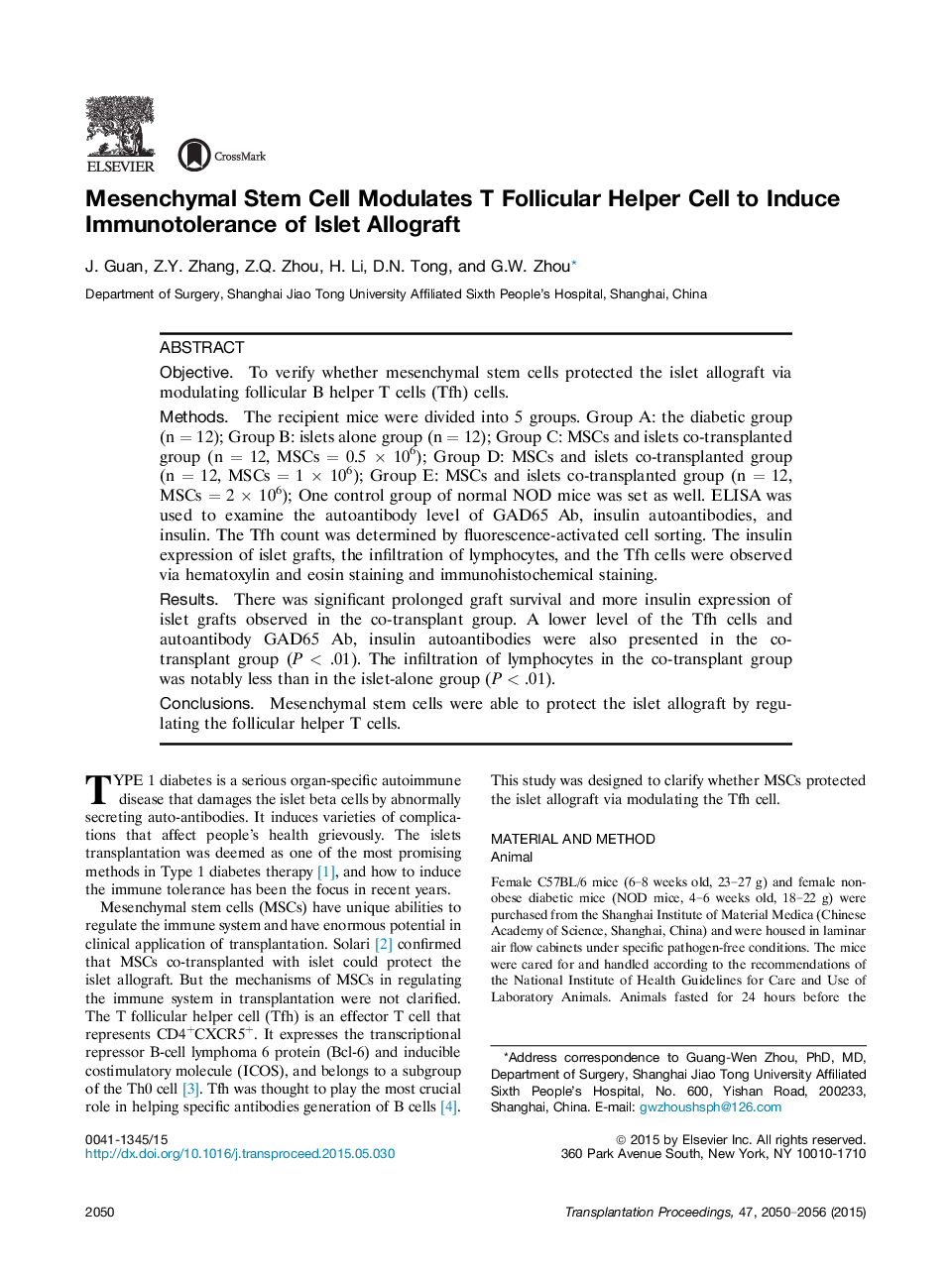| Article ID | Journal | Published Year | Pages | File Type |
|---|---|---|---|---|
| 6247304 | Transplantation Proceedings | 2015 | 7 Pages |
â¢We found that the Tfh cell count was much higher in diabetic mice than in normal mice.â¢We found that MSCs co-transplanted with islet could reduce the diabetic autoantibodies in NOD mice.â¢We demonstrated that MSCs were able to protect the islet allograft by regulating the Tfh cells.
ObjectiveTo verify whether mesenchymal stem cells protected the islet allograft via modulating follicular B helper T cells (Tfh) cells.MethodsThe recipient mice were divided into 5 groups. Group A: the diabetic group (n = 12); Group B: islets alone group (n = 12); Group C: MSCs and islets co-transplanted group (n = 12, MSCs = 0.5 à 106); Group D: MSCs and islets co-transplanted group (n = 12, MSCs = 1 à 106); Group E: MSCs and islets co-transplanted group (n = 12, MSCs = 2 à 106); One control group of normal NOD mice was set as well. ELISA was used to examine the autoantibody level of GAD65 Ab, insulin autoantibodies, and insulin. The Tfh count was determined by fluorescence-activated cell sorting. The insulin expression of islet grafts, the infiltration of lymphocytes, and the Tfh cells were observed via hematoxylin and eosin staining and immunohistochemical staining.ResultsThere was significant prolonged graft survival and more insulin expression of islet grafts observed in the co-transplant group. A lower level of the Tfh cells and autoantibody GAD65 Ab, insulin autoantibodies were also presented in the co-transplant group (P < .01). The infiltration of lymphocytes in the co-transplant group was notably less than in the islet-alone group (P < .01).ConclusionsMesenchymal stem cells were able to protect the islet allograft by regulating the follicular helper T cells.
